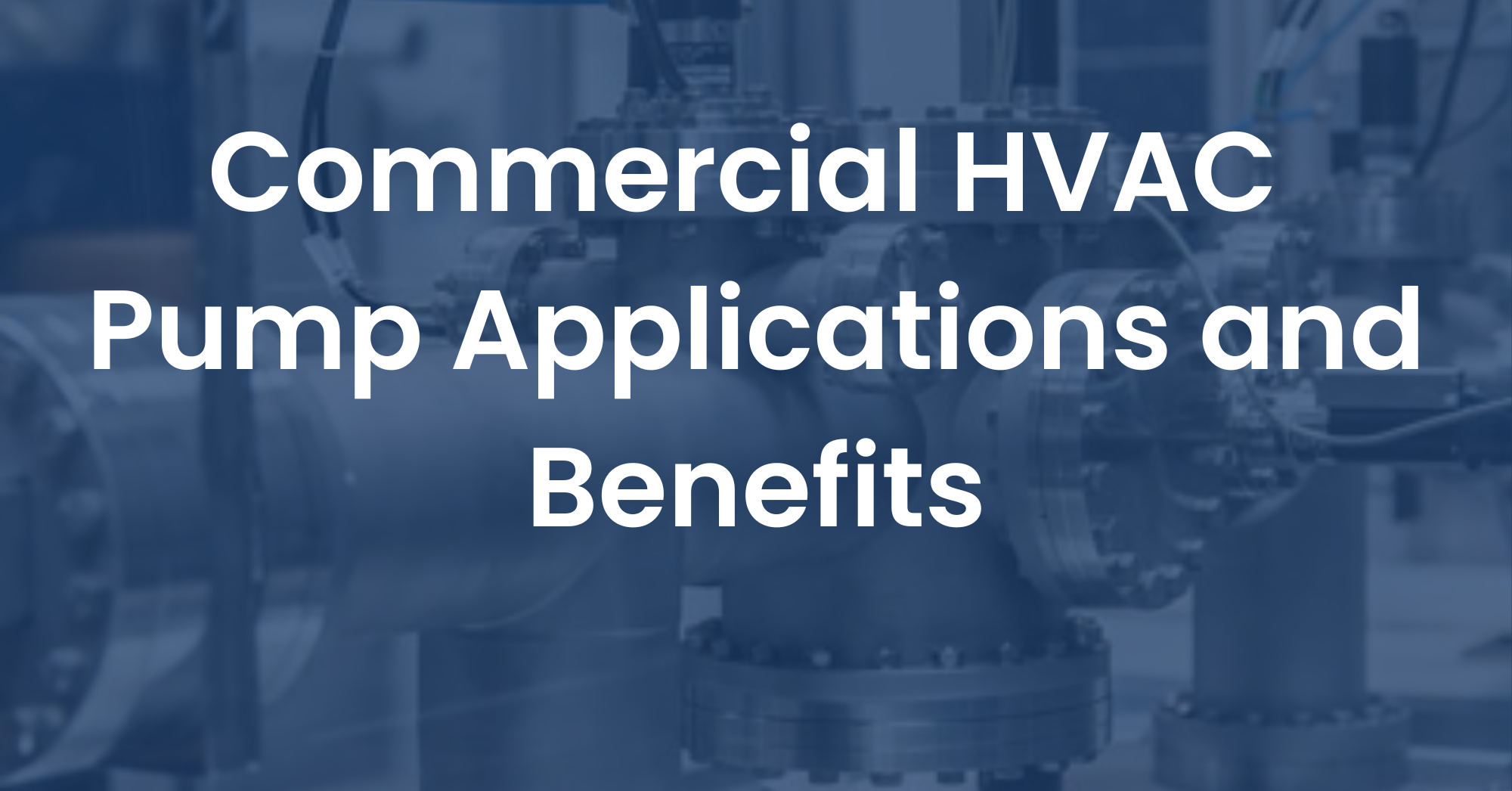Commercial HVAC pumps play a vital role in moving fluids used for heating and cooling throughout the various components of a commercial HVAC system. Selecting the right pump is essential for ensuring energy efficiency, reducing operating costs, and maintaining the reliability and longevity of the entire system. Understanding how different types of HVAC pumps function can help facility managers and engineers make informed decisions when designing or upgrading their systems. Commercial HVAC pumps are typically installed in either closed-loop or open-loop systems. Closed-loop systems keep the water and components sealed, while open-loop systems allow water to be exposed to the atmosphere. Closed-loop systems are more common in commercial applications due to their superior control and energy efficiency. In a closed-loop system, water circulates through an air-handling coil to either heat or cool the incoming air. Some designs use chilled water first to lower humidity before warming the air with heated water. This process ensures consistent and efficient temperature control. Water also functions as a condenser in remote heat pump setups, further expanding its application in HVAC systems. When selecting pumps for closed-loop systems, factors such as pressure loss, system pressure requirements, and piping configuration must be carefully considered. Open-loop systems, though less common, require attention to pressure loss and static elevation, making them more complex to design and maintain. There are several types of HVAC pumps used in commercial buildings, each designed for specific applications. These include cold and hot water circulators, cooling towers, end-suction pumps, split-case pumps, sump pumps, vertical in-line pumps, vertical multi-stage pumps, and VFD constant-pressure systems. Cold water circulators are essential in chilled water systems, where cold water is continuously circulated through a building to provide cooling. As the water absorbs heat, it returns to the chiller to be cooled again. Hot water circulators help maintain system efficiency by preventing the cold water from becoming too cold, ensuring balanced performance. Cooling towers are specialized heat exchangers that cool water by exposing it to air. As water evaporates, it cools down, making it ideal for reusing in HVAC systems. HVAC pumps move heated water from condensers or industrial processes to the tower, where it is cooled and then returned for reuse. This cycle helps reduce energy consumption and improve overall system efficiency. End-suction pumps are a type of centrifugal pump commonly used in smaller HVAC systems. They draw water horizontally and redirect it vertically using an impeller. These pumps are known for their simplicity, ease of maintenance, and cost-effectiveness, making them suitable for low-flow applications. Split-case pumps offer flexibility with both horizontal and vertical suction options. They are available in single or double-suction configurations and can handle higher flow rates efficiently. These pumps are ideal for larger systems due to their durability, energy efficiency, and quiet operation. Although primarily used for basement waterproofing, sump pumps also support HVAC systems by managing groundwater and condensation. By preventing water buildup, they protect HVAC equipment from damage and reduce the risk of mold and mildew growth, which can negatively impact indoor air quality. Vertical in-line pumps are compact and efficient, often used in systems where space is limited. They are supported by the piping system and are known for their chemical resistance and compliance with DOE standards. These pumps are ideal for high-efficiency applications and help reduce energy usage. Vertical multi-stage pumps are designed to handle high head pressures and corrosive fluids. With multiple impellers stacked on a shared shaft, they are well-suited for applications requiring precise pressure control. These pumps are energy-efficient, reduce downtime, and extend the life of the system. Variable-frequency drives (VFDs) help regulate motor speed and reduce energy consumption by adjusting power based on demand. VFD systems improve system efficiency, prevent water hammer, and extend the lifespan of HVAC components. They are especially useful in systems that operate at peak load only part of the year. Hayes Pump is the largest and oldest pump distributor in the region, serving clients from Maine to New Jersey. We specialize in supplying, installing, and servicing a wide range of commercial HVAC pumps, including circulators, cooling towers, end-suction pumps, split-case pumps, sump pumps, vertical in-line and multi-stage pumps, and VFD systems. We work with leading manufacturers such as ITT Goulds, Pentair Aurora, and Xylem to ensure our customers get reliable, high-quality products. Our team of engineers can design custom solutions tailored to your specific needs, and we offer comprehensive training and maintenance plans to keep your systems running smoothly. Whether you're looking to upgrade your current system or need a new solution, Hayes Pump has the expertise and resources to support your HVAC needs. Contact our HVAC pump experts today to learn more about our products and services. Plasma Deburring Machine For Super Alloy Plasma Deburring Machine For Super Alloy,Chemically Polished Deburring,Plasma Deburring Machine,Precision Parts Deburring Machine Dongguan Bayi Automation Equipment Co., Ltd , https://www.bayipolisher.com
Understanding Commercial HVAC Pump Configurations
Common Types of Commercial HVAC Pumps
Cold and Hot Water Circulators
Cooling Towers
End-Suction HVAC Pumps
Split-Case HVAC Pumps
Sump Pumps
Vertical In-Line HVAC Pumps
Vertical Multi-Stage HVAC Pumps
VFD Constant Pressure Systems
Why Choose Hayes Pump?
 hbspt.cta._relativeUrls=true;hbspt.cta.load(8219255, '7ad18e8f-55ef-4a8b-ad79-8f63b0928447', {"useNewLoader":"true","region":"na1"});
hbspt.cta._relativeUrls=true;hbspt.cta.load(8219255, '7ad18e8f-55ef-4a8b-ad79-8f63b0928447', {"useNewLoader":"true","region":"na1"});
Commercial HVAC Pump Applications and Benefits
